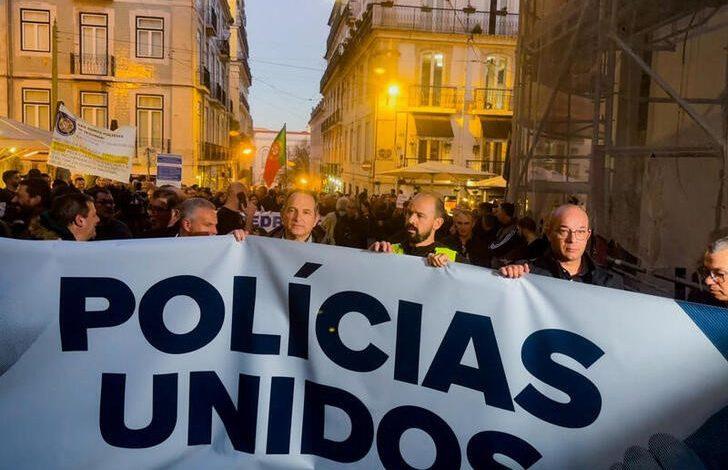Thousands of Portuguese Police Protest Over Wages, Hazard Pay

Thousands of off-duty police officers in plain clothes demonstrated in Lisbon on Wednesday for higher pay, asking for the same increases in hazard pay as the existing government just awarded to the criminal investigation police.
In late November, following Prime Minister Antonio Costa’s departure but while he had full authority to make long-term decisions, the government authorized hazard pay increases for the PJ that may reach around 700 euros ($763) per month and are retroactive to January 2023.
Since then, Public Security Police (PSP) personnel and members of the National Republican Guard (GNR), which patrols highways and rural regions, have launched protests in many cities to protest what they see as unfair treatment.
“We demand the same treatment that was given to the PJ (because) it has to do with higher wages,” said the head of the SUP police union, Humberto de Carvalho.
He added that members of the PSP and the GNR had “practically the same competencies as those of the PJ”.
The protesters gathered in a square in downtown Lisbon and started a silent march towards parliament, where they only planned to sing the national anthem.
Interior Minister Jose Luis Carneiro has said the caretaker government can no longer decide on wage increases and that it would be up to the next administration emerging from the March 10 election to “assume new budgetary responsibilities”.
Police union association ASPP said on Tuesday that the average hazard pay in the PSP was currently between 380 and 420 euros per month, while in the PJ it has reached 1,000 euros.
In a statement on Friday, President Marcelo Rebelo de Sousa said that professionals from the GNR and PSP, as well as from other police forces, must have a compensation regime equivalent to that of the PJ.





